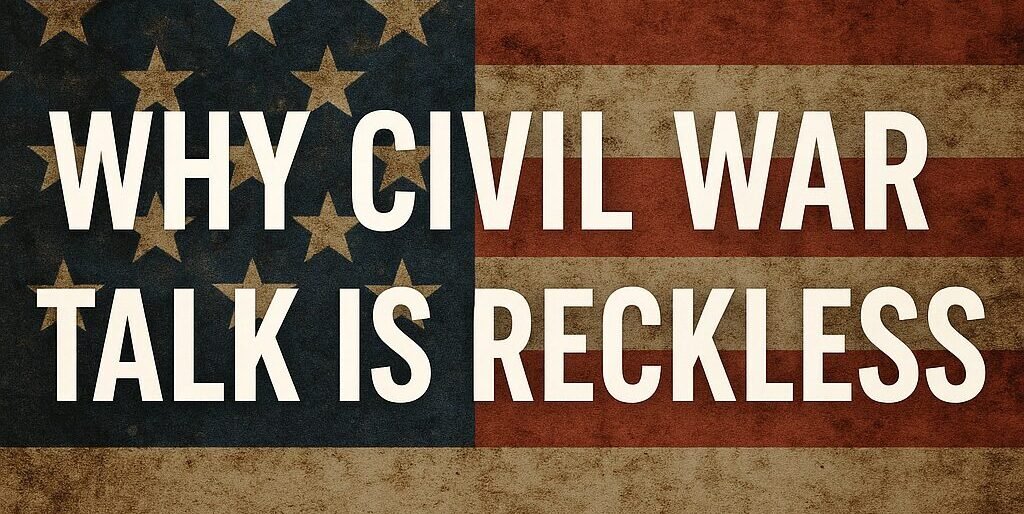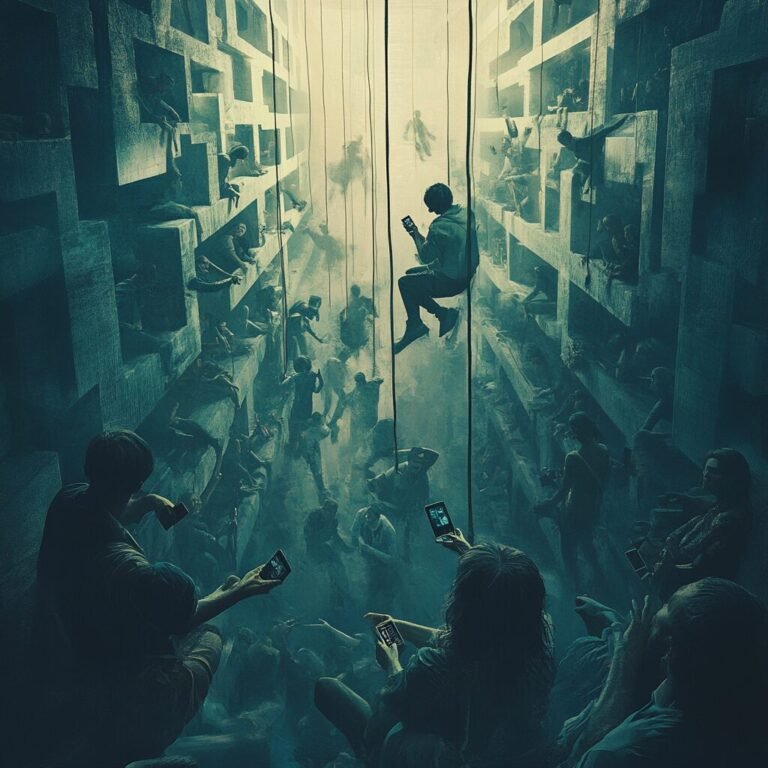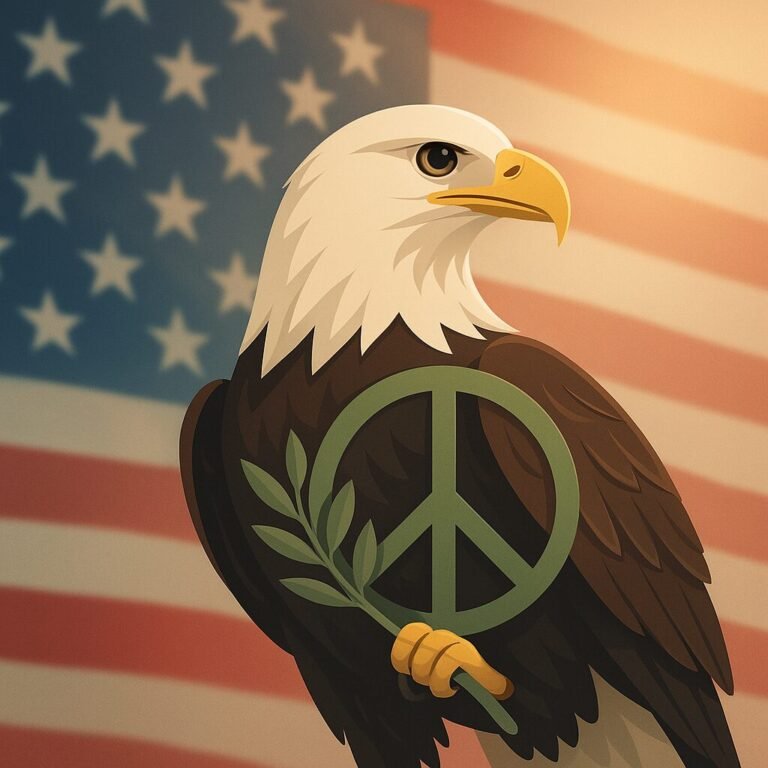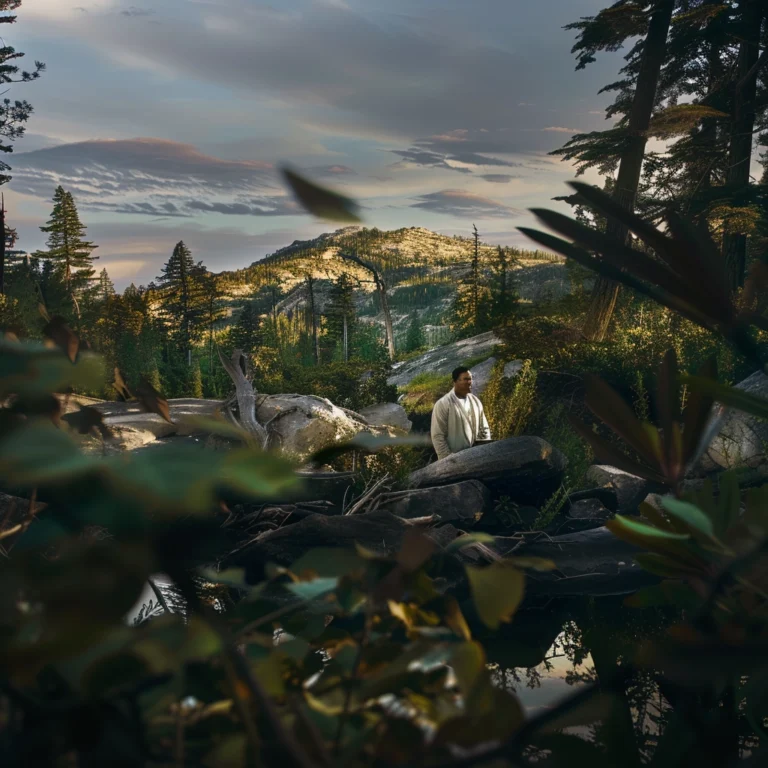Why Civil War Talk Is Reckless
Context and Purpose
People are talking more about a new civil war in the United States. This shows up a lot on social media. Some users treat it like a game or a way to feel brave. In an earlier video, I speak plainly about people in our lives, people we probably grew up with, who were great at starting fights but not good at fighting at all, if they even fought. History tells a different story. Real civil conflict is ugly and long. It breaks families, towns, and whole systems that keep us alive. This post explains why casual talk about civil war is dangerous, who it often comes from, and what the real costs would be. It also points to the better path we already have in a democracy. These ideas build on themes in past posts about resisting political violence and defending democratic norms, so the content here affirms, not conflicts with, earlier writing on this site.
Who Pushes the Rhetoric
Many loud voices calling for conflict have never worn a uniform or seen violence up close. They are often seeking meaning, not planning. They use tough words online, but they depend on the very systems that war would destroy. They expect power, comfort, and quick victory. They do not picture hospitals without medicine, roads without fuel, or phones without service. They imagine a movie ending. Real life does not work like that.
What a Civil War Would Break
A civil war would not settle a debate. It would smash the things we all need to live. I talked about this in one of my youtube episodes…people need to chill out. Health care would falter when supply chains fail. Emergency rooms need drugs, power, water, and staff who can travel safely. Utilities would face sabotage and neglect. No power means no pumps for clean water and no cold storage for food and insulin. Fuel shortages would strand people far from loved ones and from care. Communication would be spotty and slow, which breeds fear, rumor, and more harm. This spiral would not last days. It would last years, perhaps decades.
The Human Cost
Loss piles up fast in war, if uou don’t know you should read a book on civil wars that have occurred across the globe. Families are shredded. Kids miss school for months or longer, in some instances a thing of the past. Elders go without care if they survive. People who rely on the internet for work or community would feel cut off and alone. If there is work. Who is going to work in an active war zone? Some would turn to anger to feel strong and start abusing their neighbors. Others would shut down. Most would just be scared. And when the shooting stops, the grief and debt keep going. Veterans carry wounds that are seen and unseen. Civilians carry trauma that shapes a whole generation. The same users who joked online would later learn what they were cheering for. By then, it would be too late. Not good. STOP ENTERTAINING A CIVIL WAR FANTASY!!!
Who Would Benefit
There are no winners inside the country. None. The ONLY winners would be hostile foreign actors. They would watch our chaos, feed our rumors, and cash in on our weakness. They would move to shape borders, markets, and alliances while we are busy bleeding. They would not need to fire a shot to gain ground. That is the bitter truth of civil conflict in a global age. Our rivals study us. They know our fault lines. They will press them if we let them.
A Better Path Forward
A democracy gives us a safer way to fight for what we believe. We can organize, vote, petition, and hold leaders to account. These tools are slower than rage. They are also stronger than rage. They build rather than break. They let neighbors stay neighbors after an election. They let us fix what is broken without tearing apart what still works. This is not naive. It is practical. It is the way we protect hospitals, schools, utilities, and the people who make them work. It is also the way we win real change that lasts.
Closing Thought
Careless calls for civil war are not brave. They are reckless. They risk the lives and futures of people who will never touch a trigger. They weaken the common goods that keep us alive and connected. Past posts on this blog have said that democracy is worth fighting for and that political violence is never acceptable. This post affirms that same core stance and gives more detail on why it matters now. We can argue hard and still choose to build. That choice is the work of citizens, not soldiers.
Reflective questions:
- What are two concrete steps you can take this month to channel anger into civic action that builds rather than breaks?
- How would your community be harmed if even one essential service went down for a week, and what responsibility do we share to prevent that?







